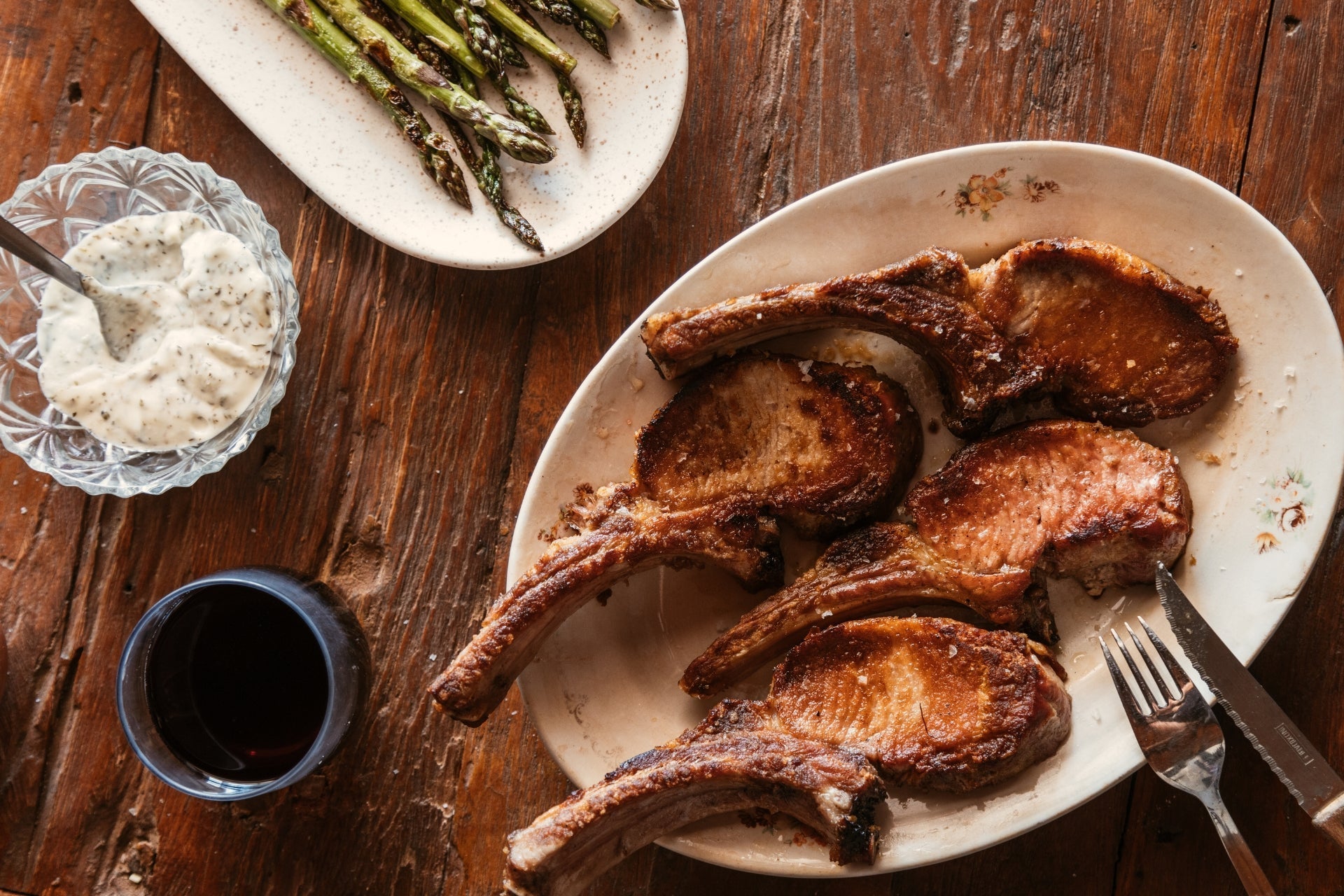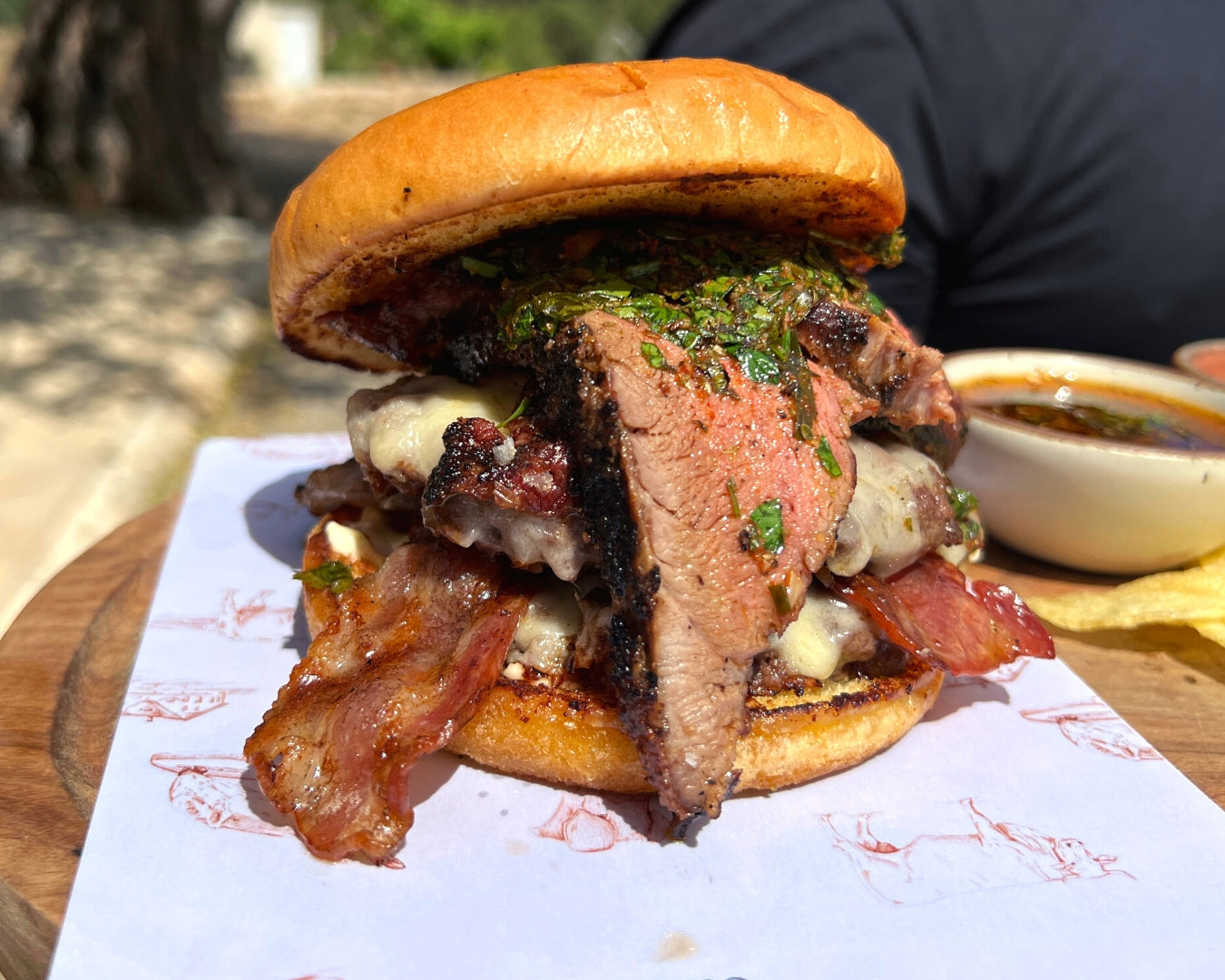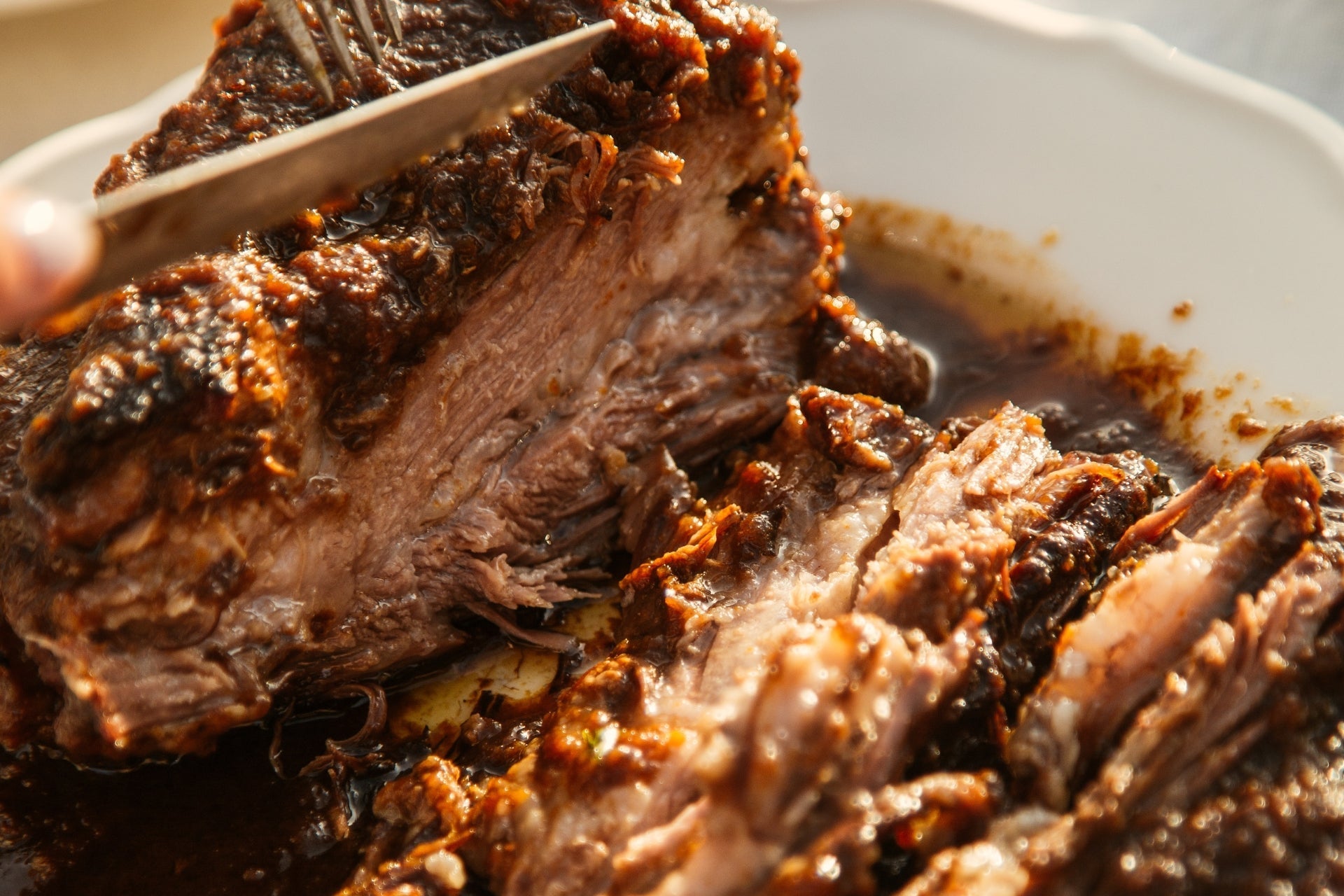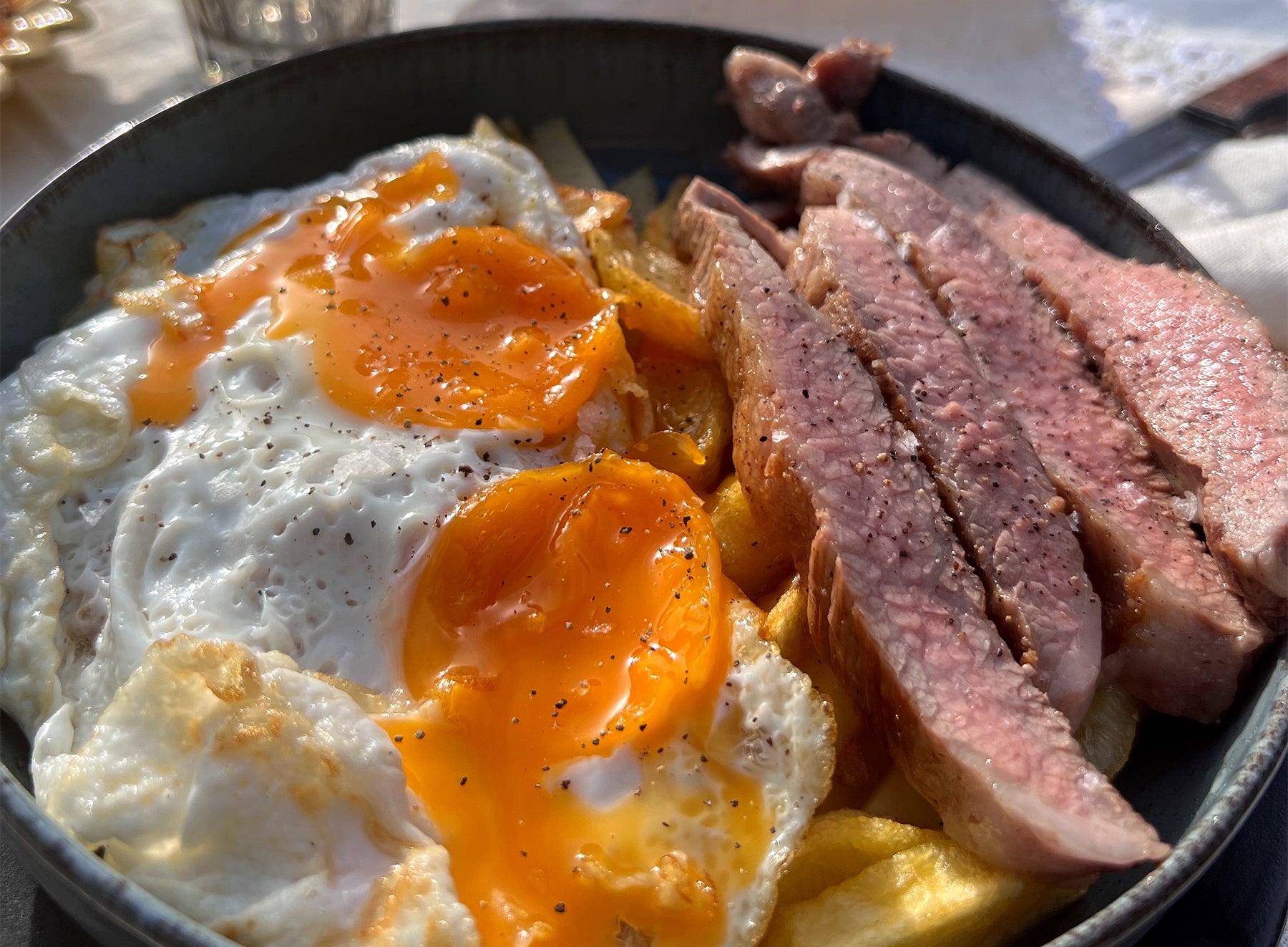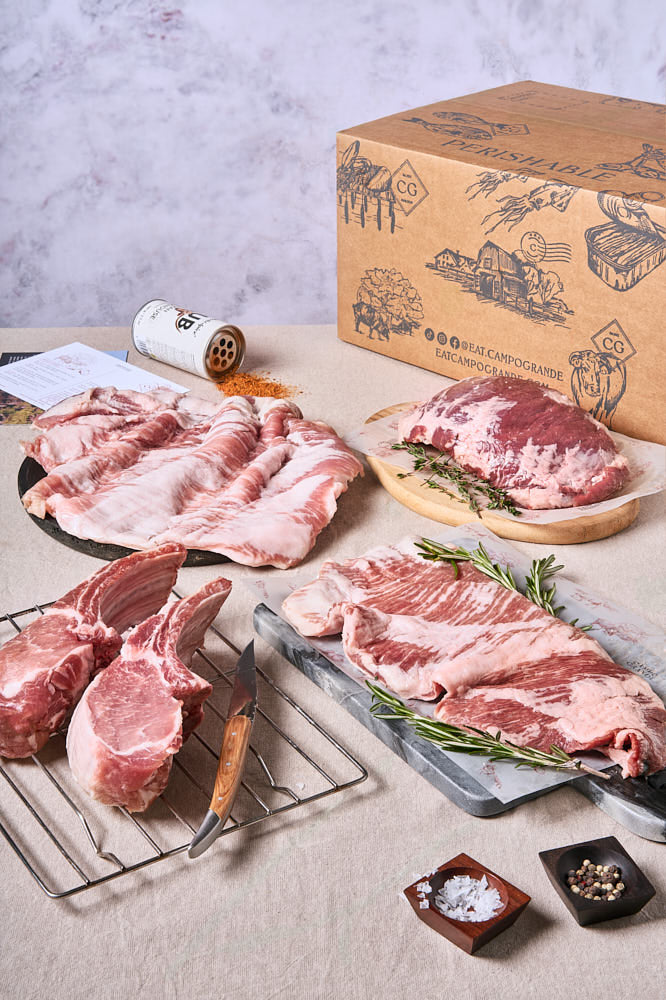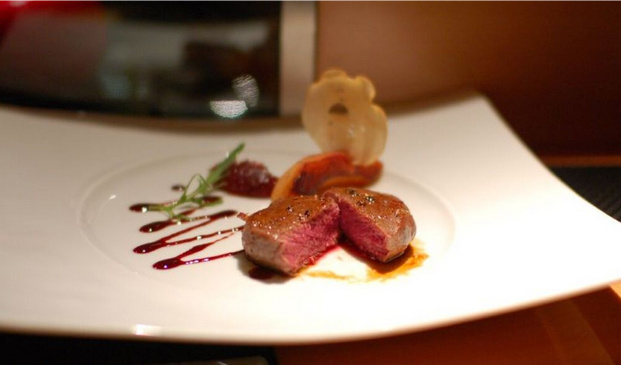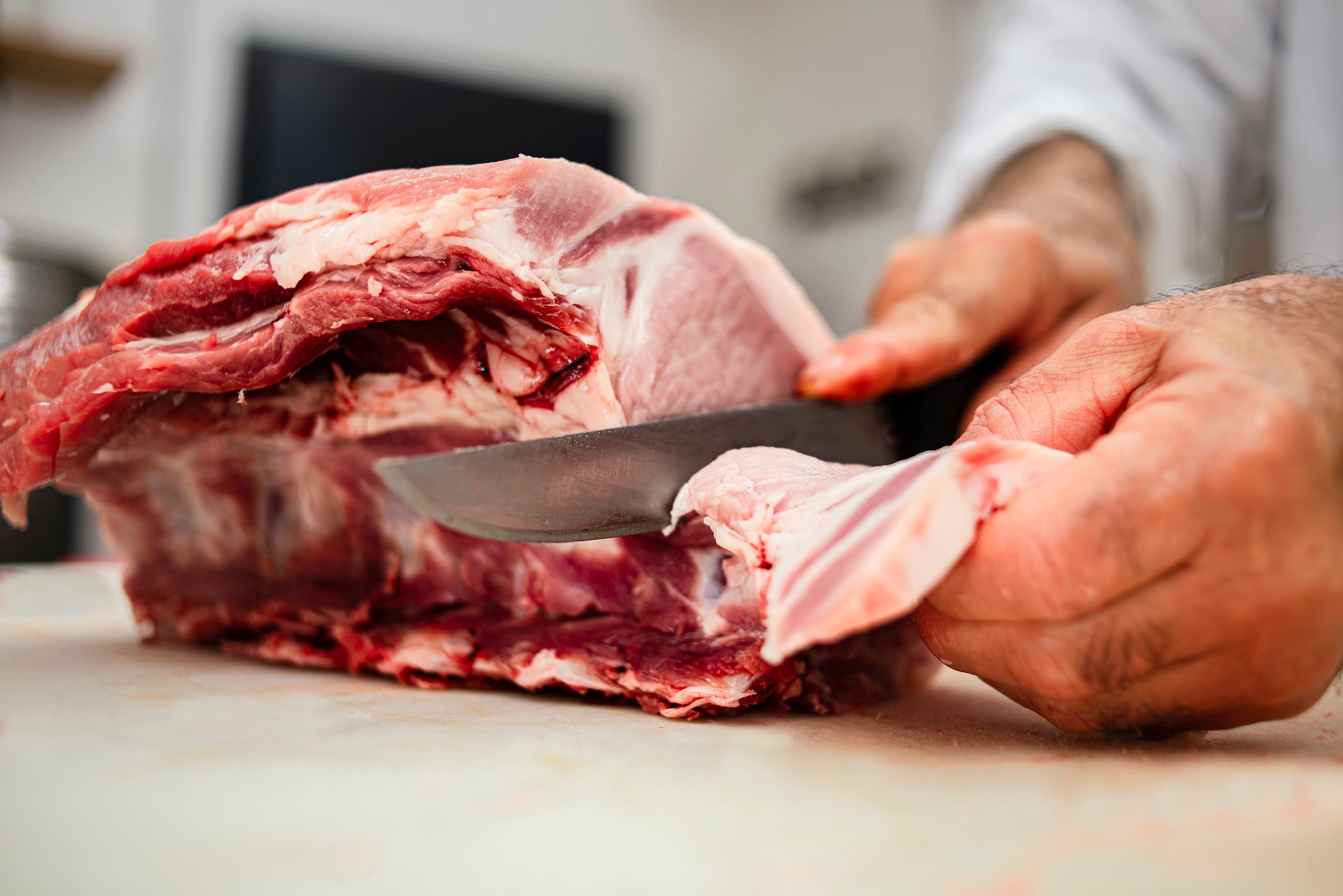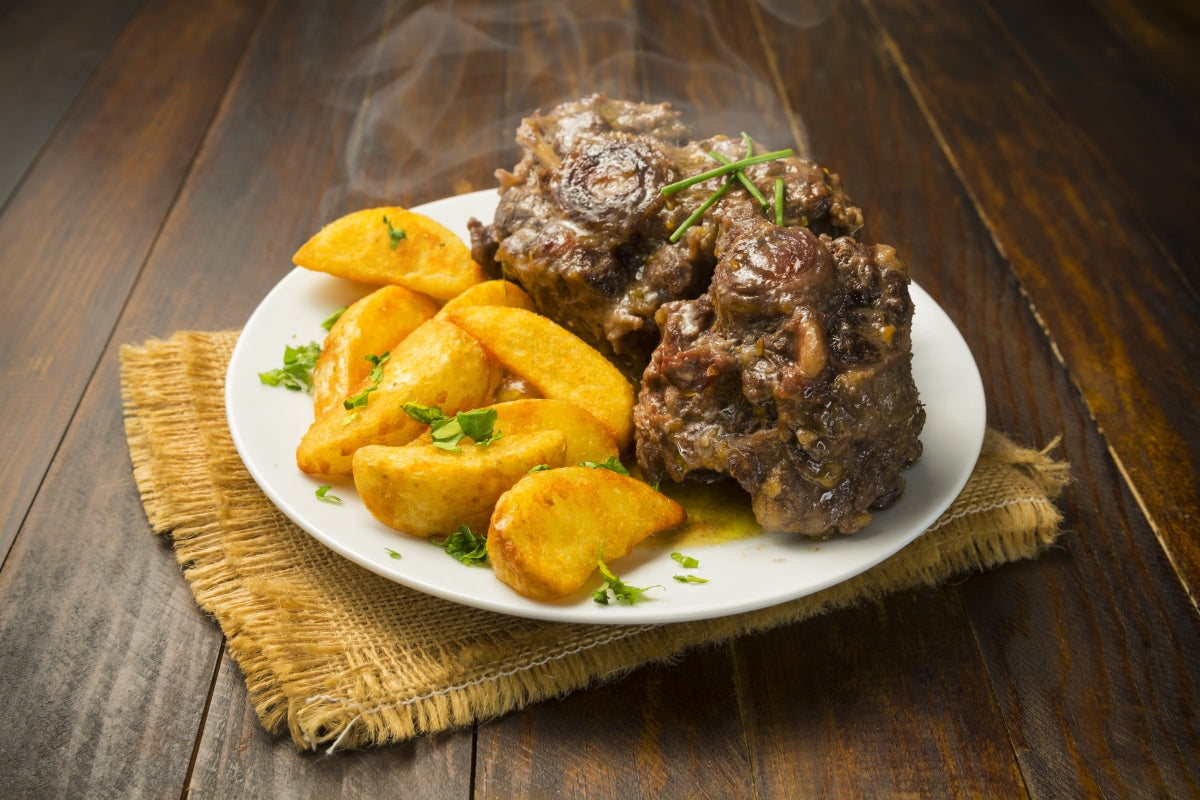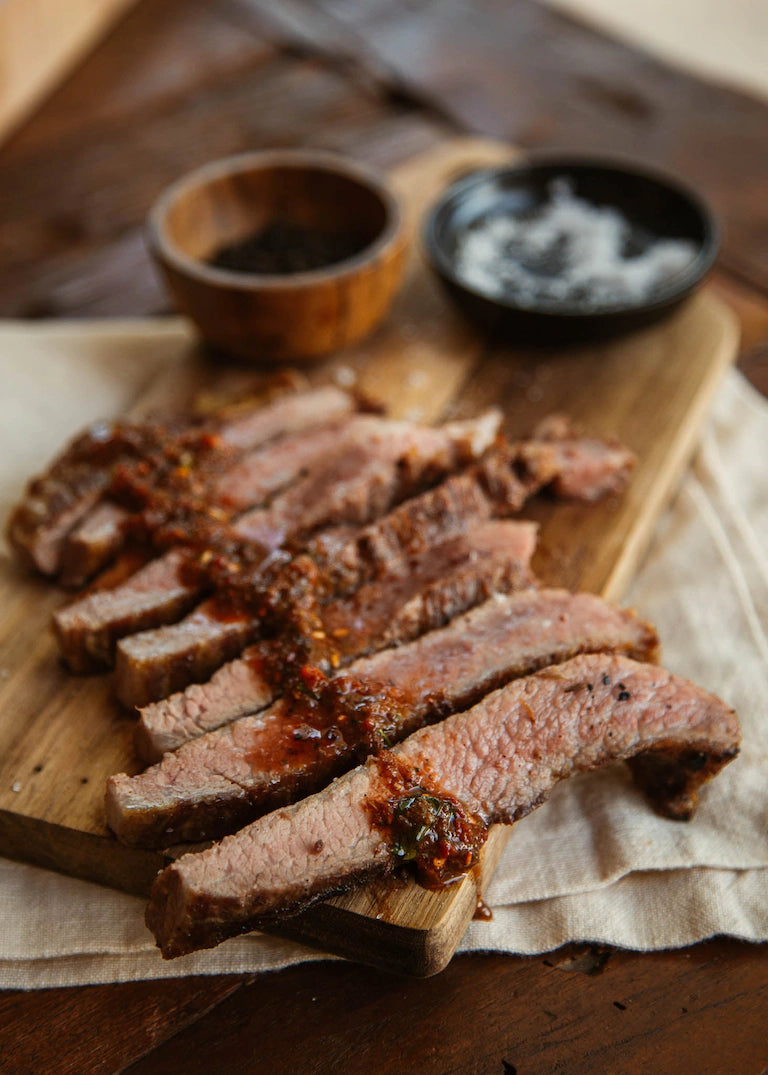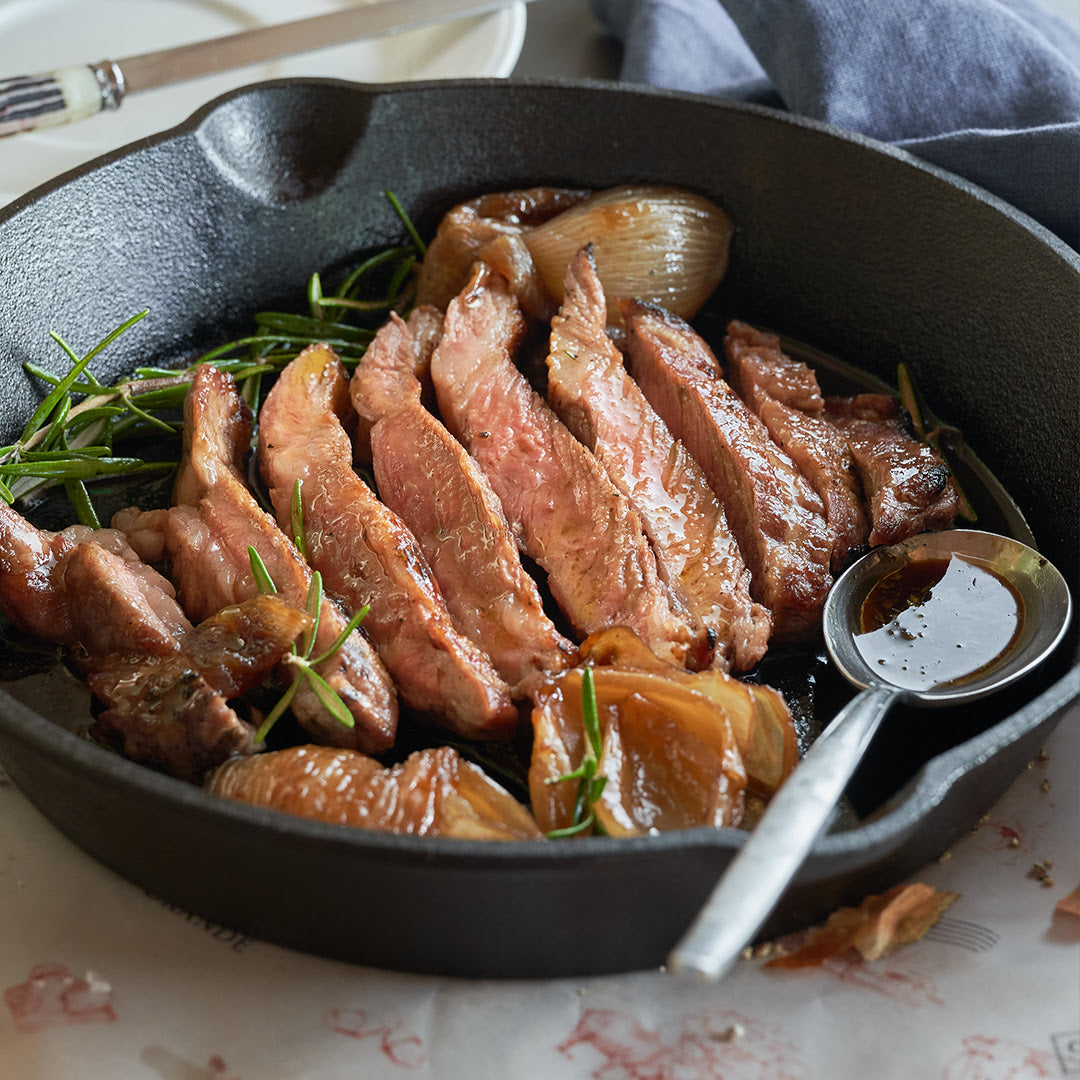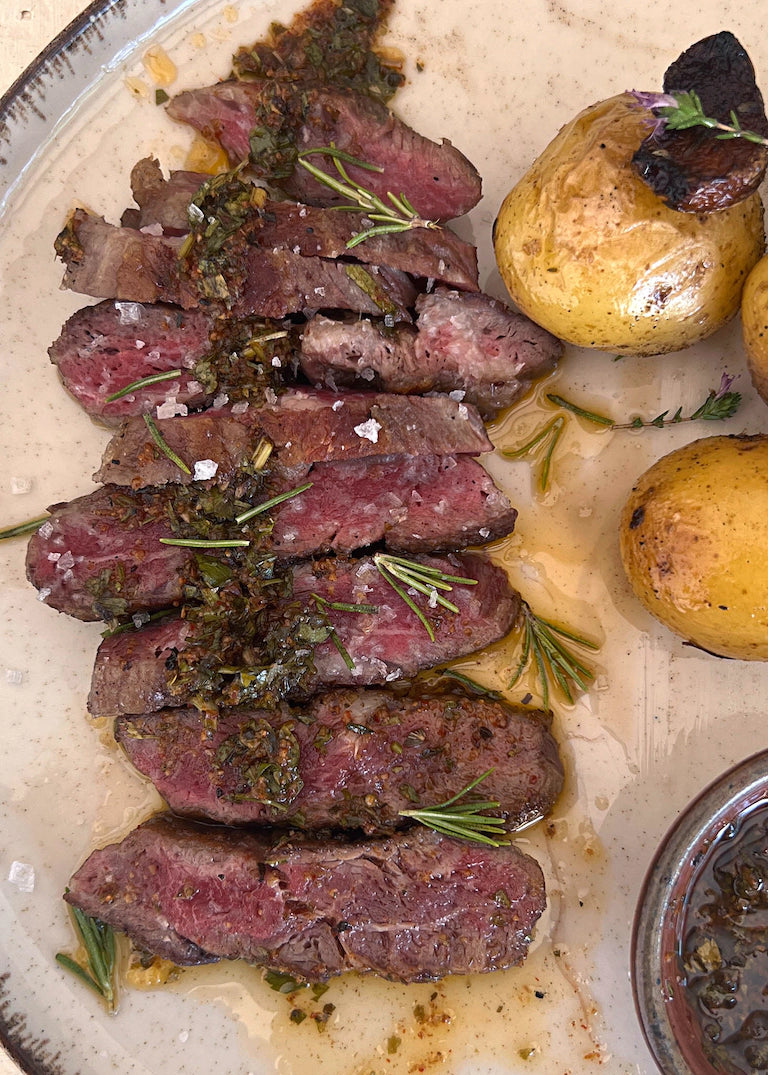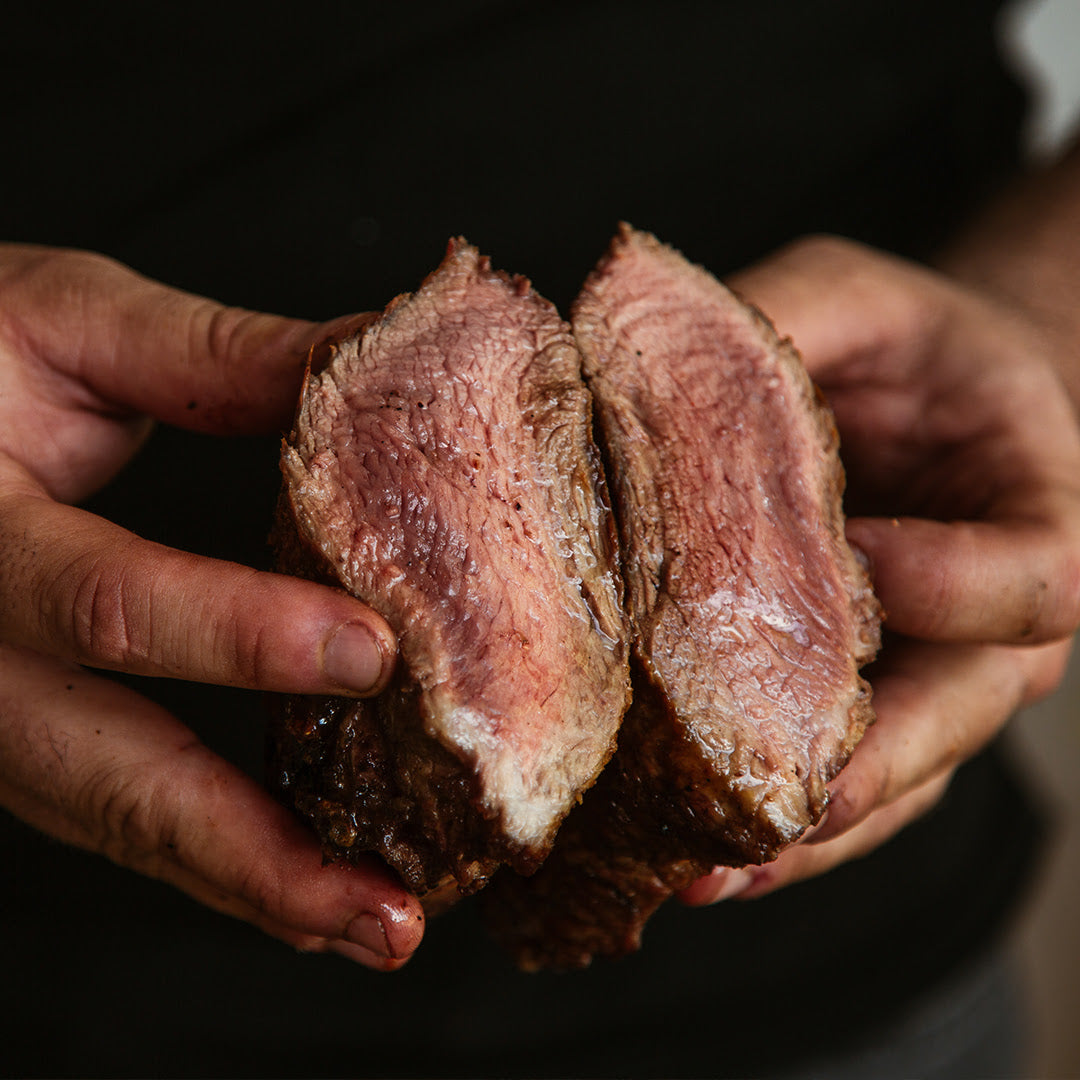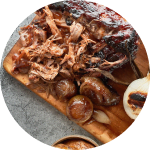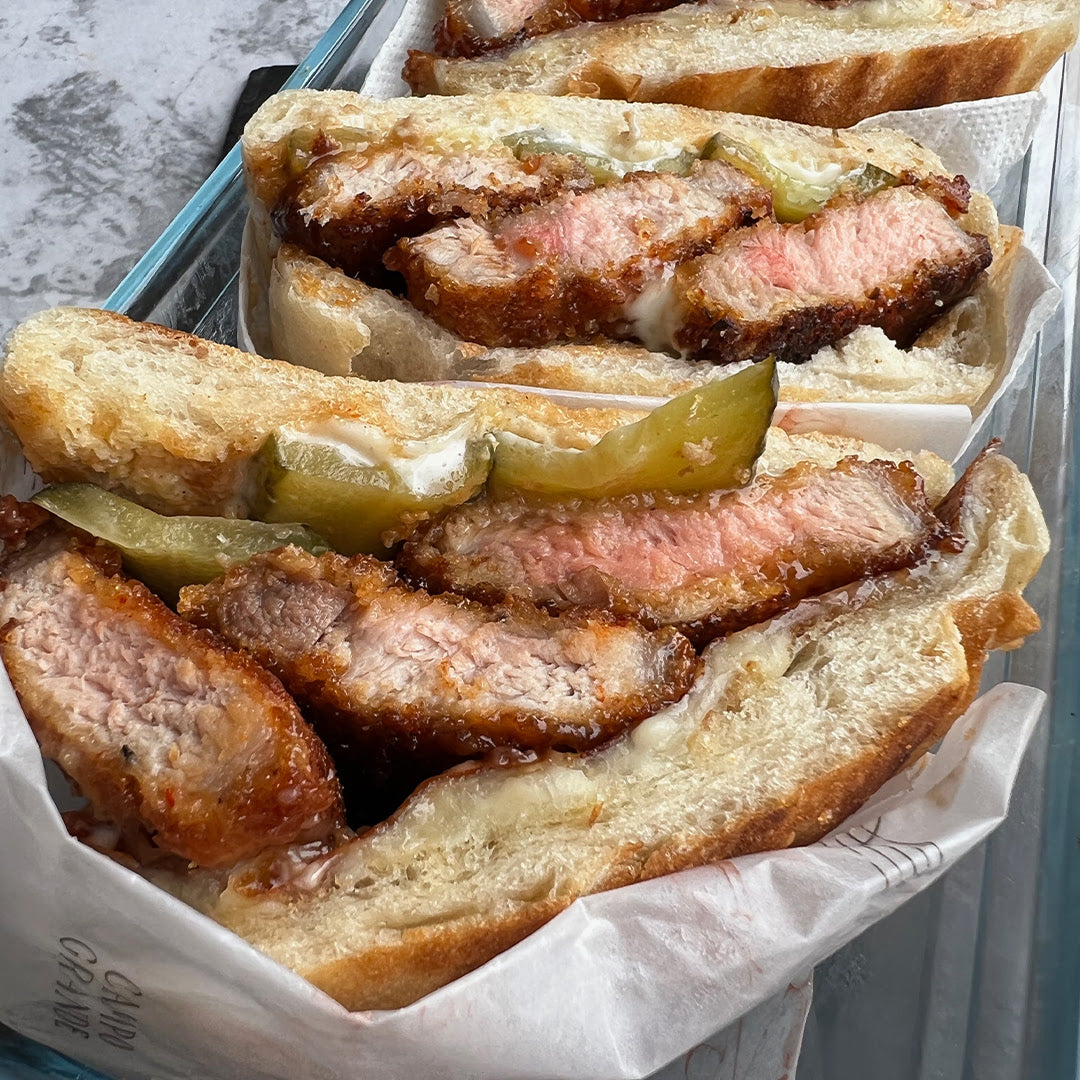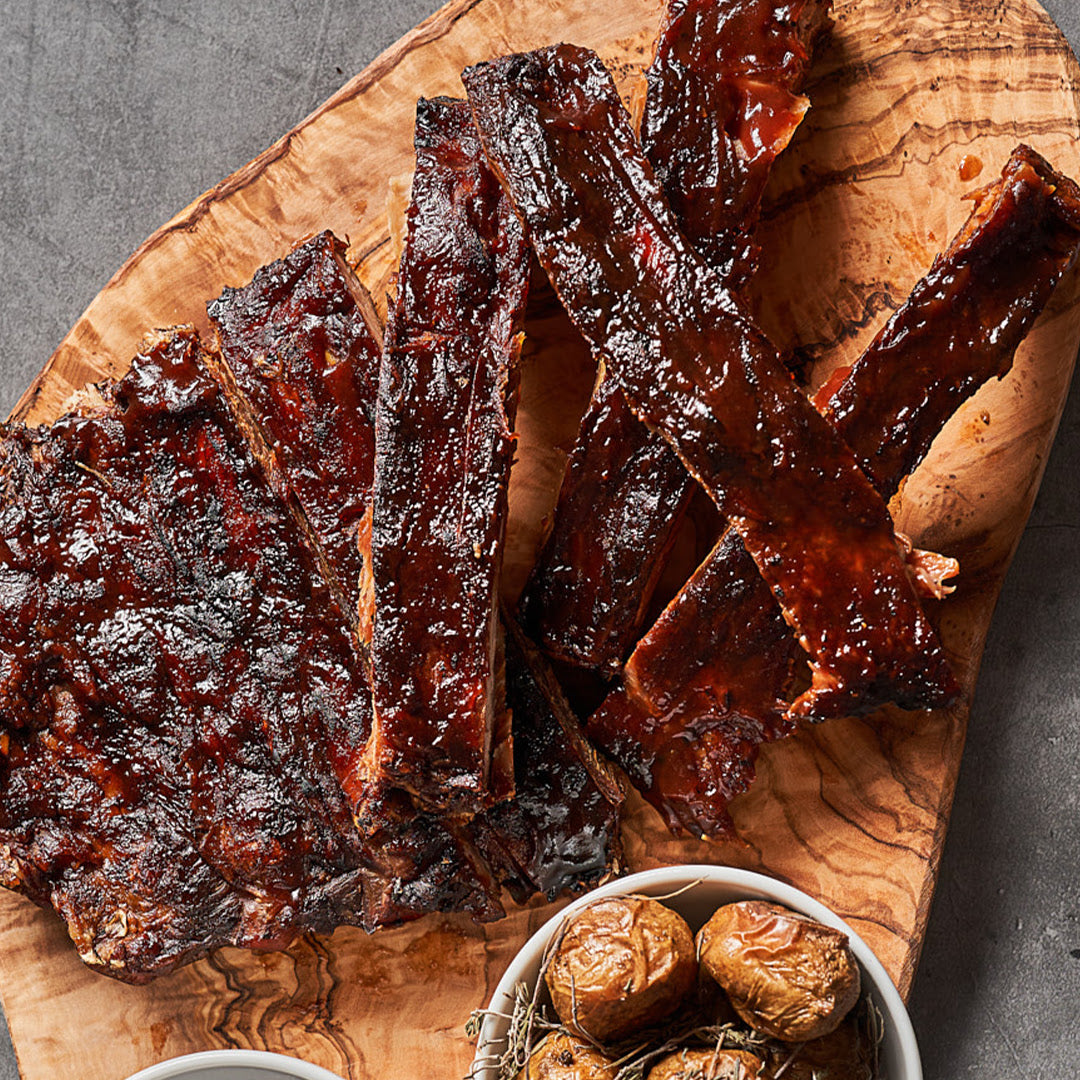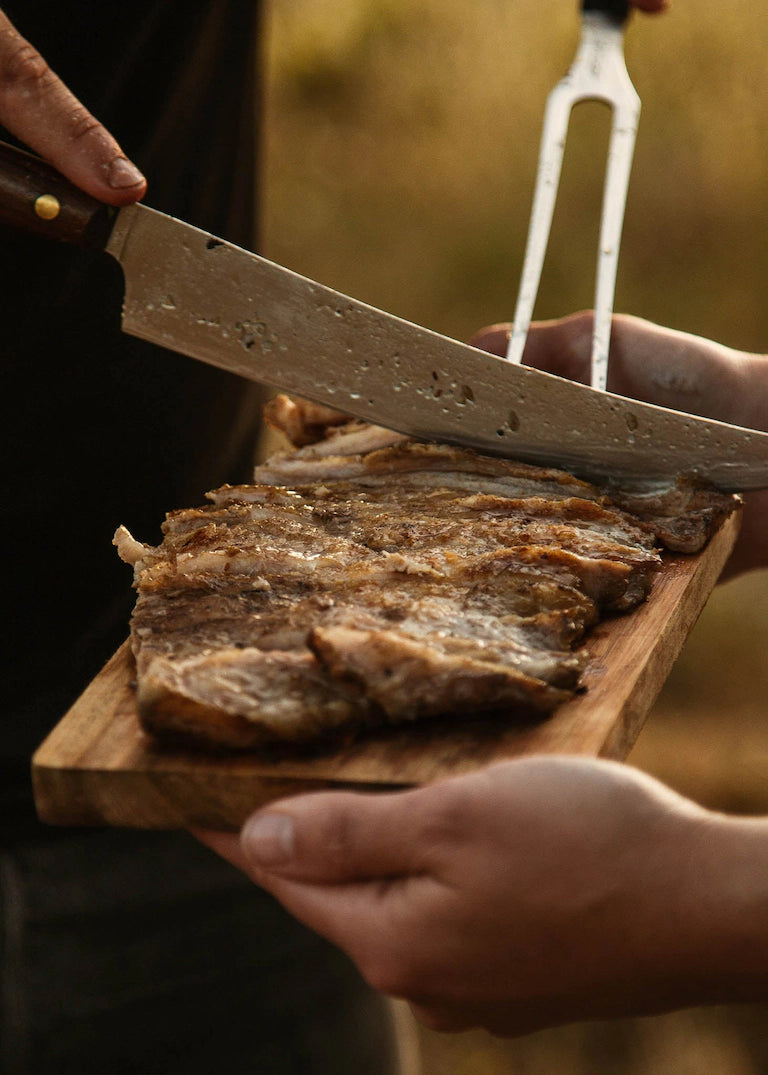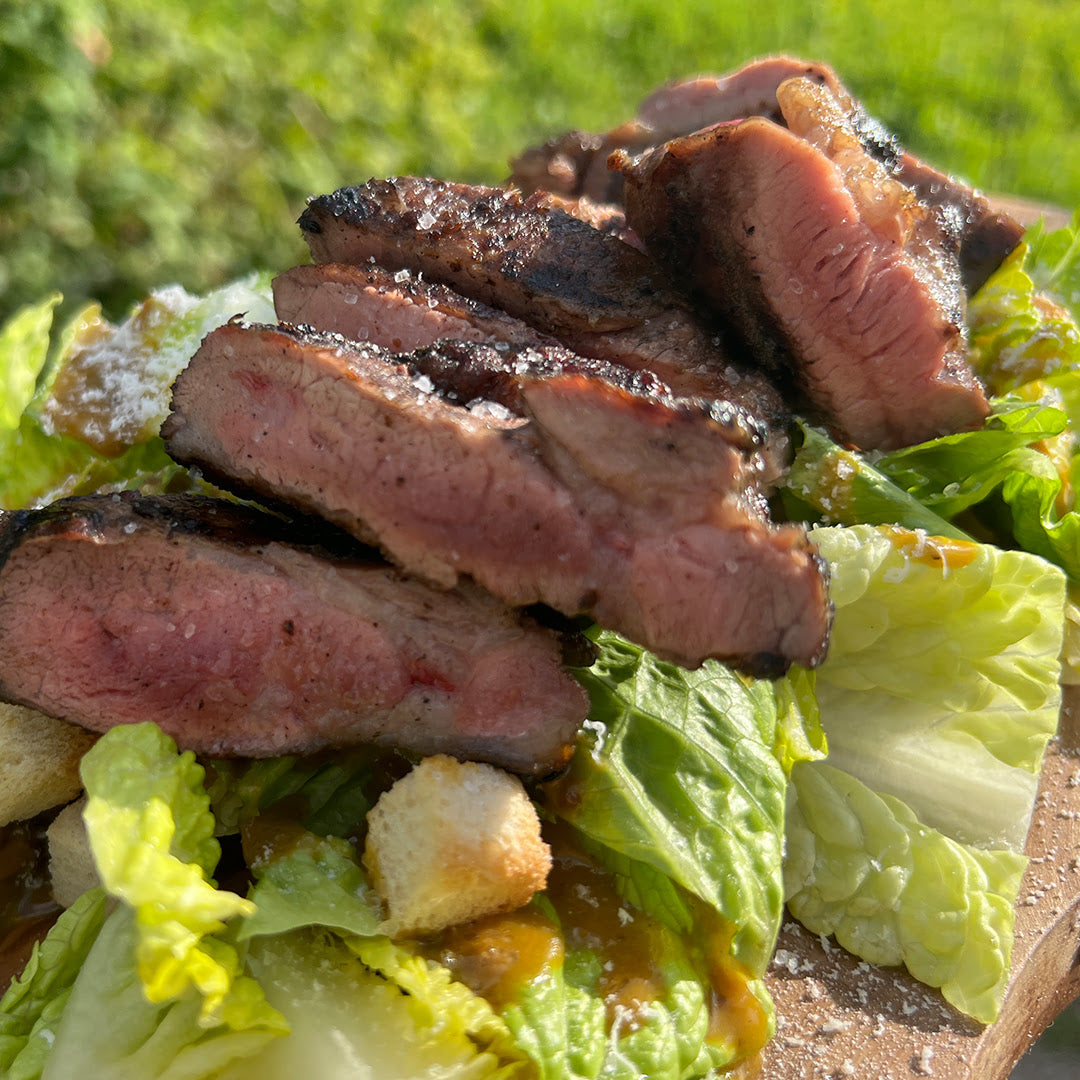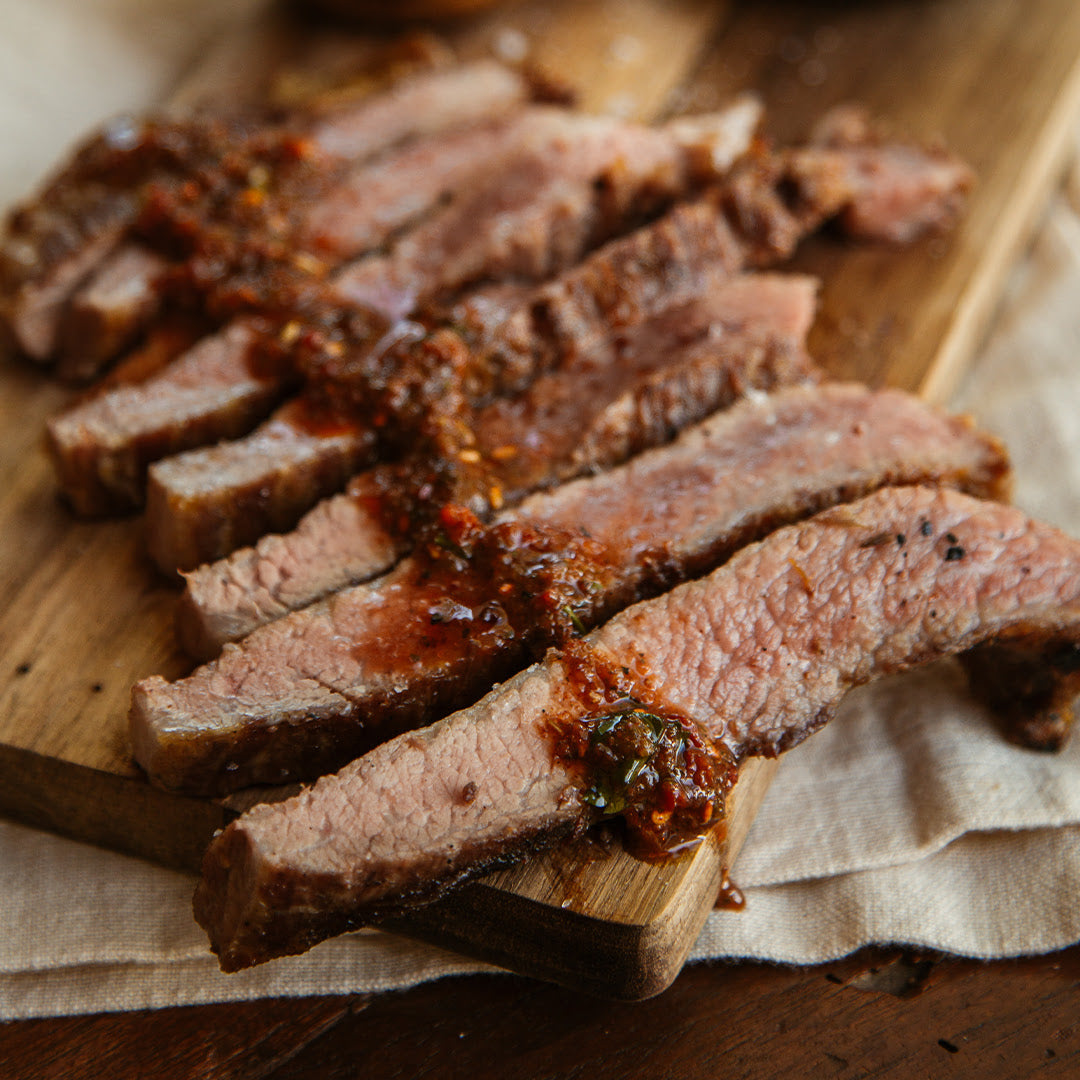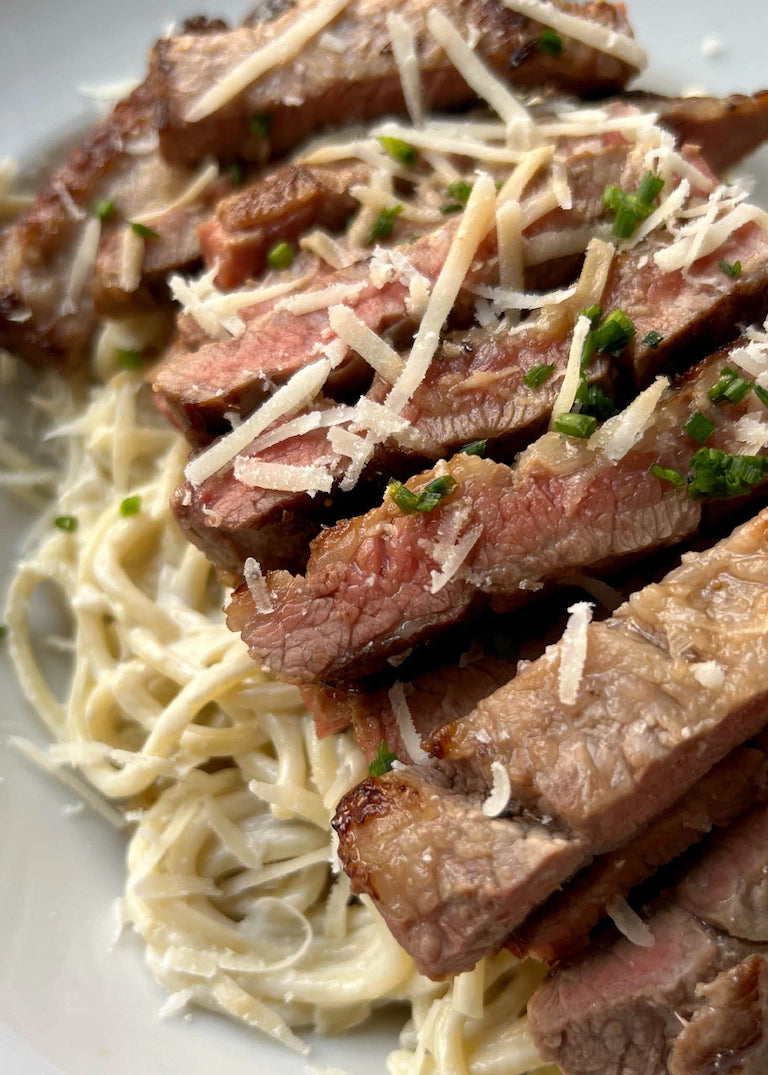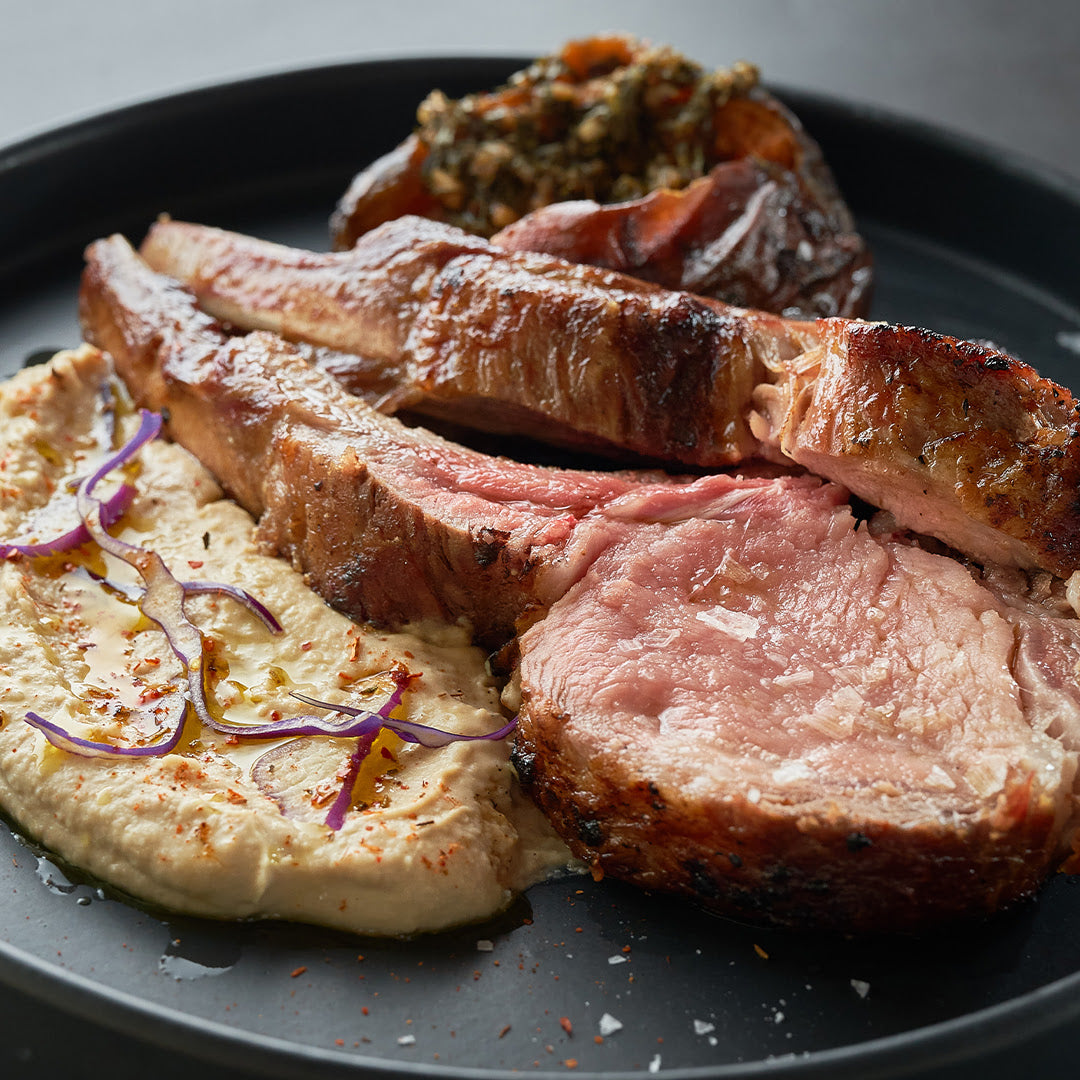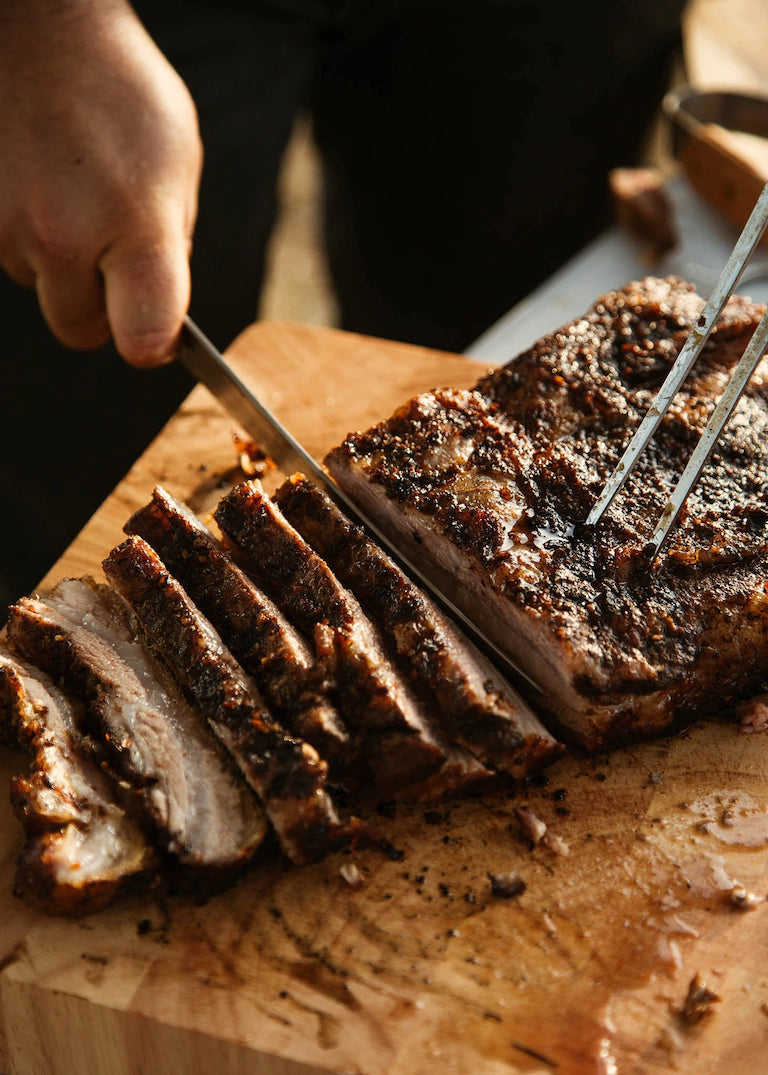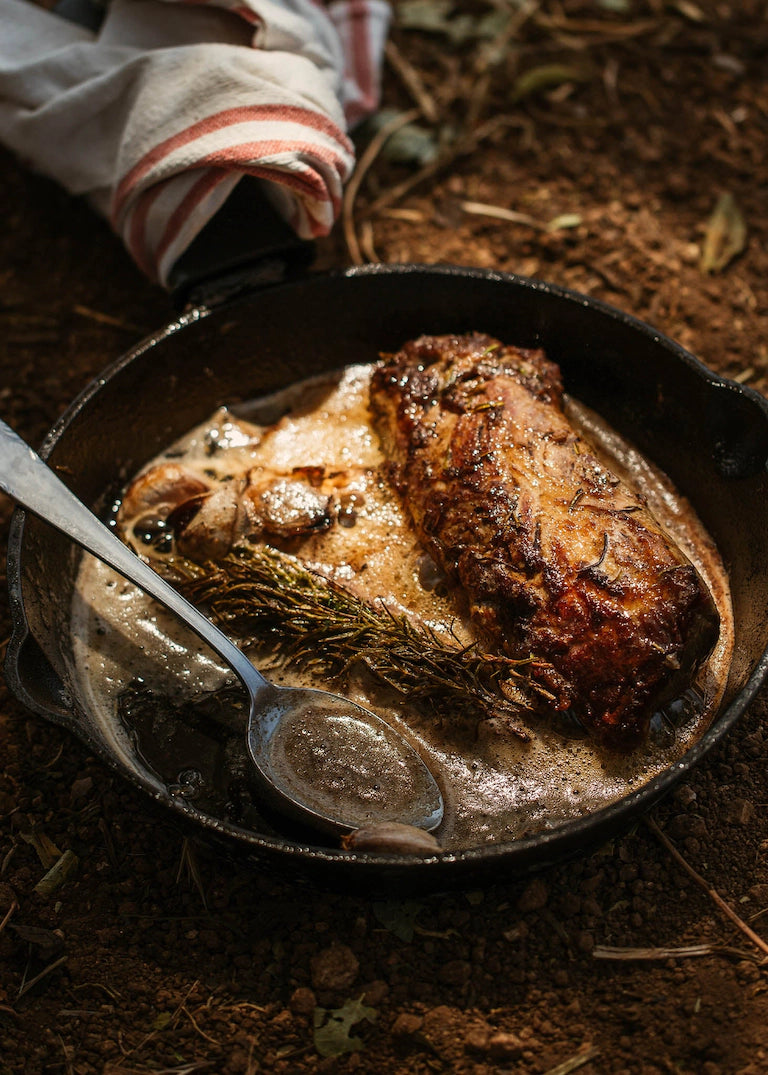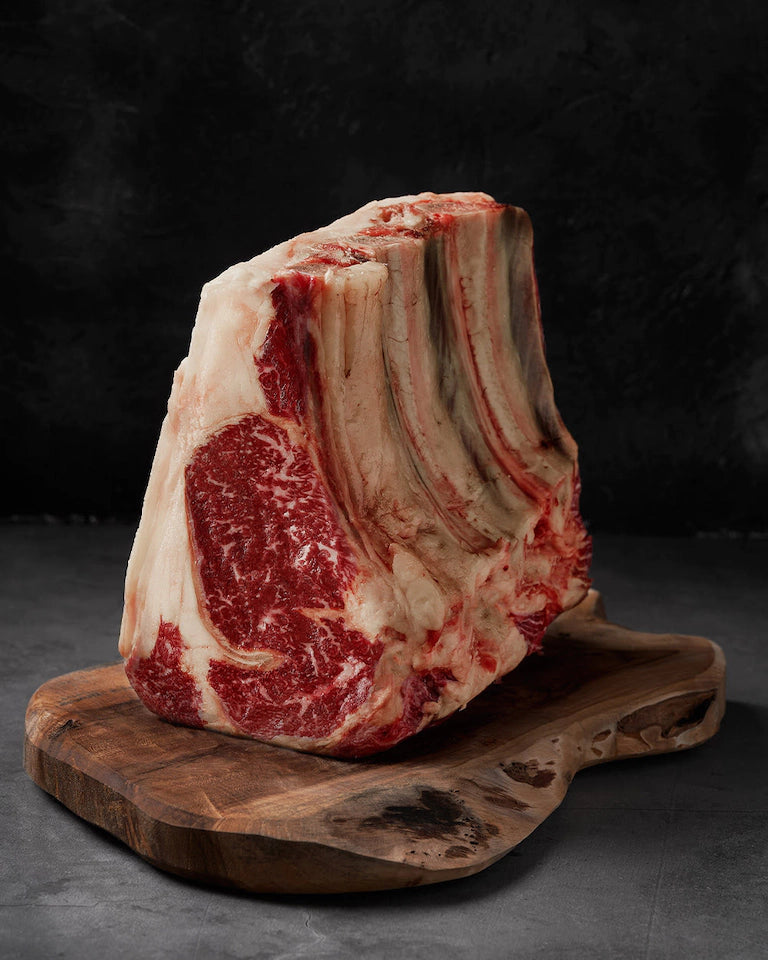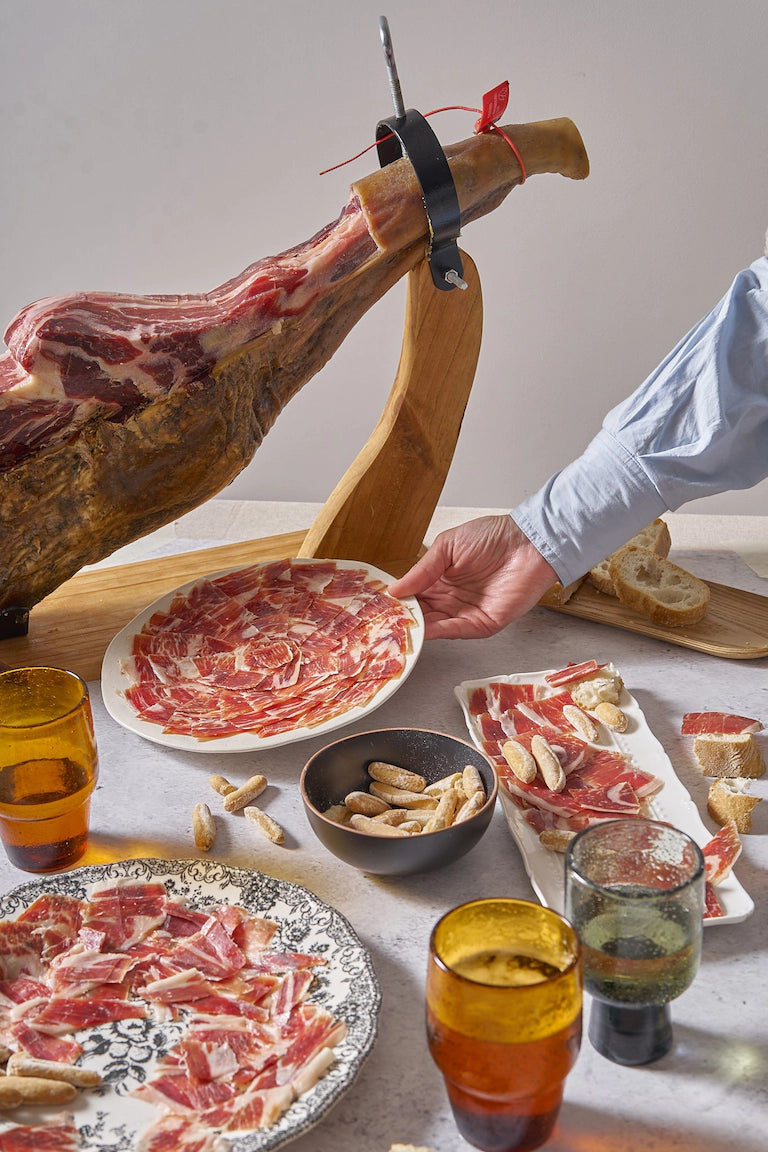
In southern Spain, there’s an ancient symbiosis between indigenous Iberian pigs and the oak groves they roam. We’re on a mission to keep that fragile ecosystem intact—and improve it for future generations.
No two mornings are the same for Ibérico pig farmer Mariano López Cepeda. As the day’s first light flickers through the oak groves of southern Spain, where he tends to his herd, you might find him bottle-feeding a piglet, fencing in a sapling with wire, digging up soil samples, or performing one-by-one health checks on his animals. Science has changed certain elements of his job, but the fundamental, centuries-old truth of Ibérico farming rings truer than ever: take care of the land, and the land will take care of you and your herd.
Ibérico pork has a deep red color, gorgeous marbling, and a nutty intensity that will gobsmack any in-the-know cook or food lover. But what sets Campo Grande Ibérico apart from other heritage pork isn’t just the amazing quality of our meat but also our farmers’ steadfast commitment to animal welfare and the larger ecosystem.
Like you and I, they get it: Big Meat is harming the planet, and we need a new model. That’s why family-owned Ibérico farms are so important: They remind us how pork is supposed to taste, and more importantly, that we can feel good about eating it.
Ibérico pig farming was “Regenerative” centuries before that buzzword existed. It all starts with semi-wild pigs born into the Spanish dehesas, scrubby oak forests that provide shade and food (acorns, greenery, nuts, and seeds) for the pigs, which in turn keep the forests healthy.
The symbiosis goes something like this: As the herd grazes from pasture to pasture (aka rotational grazing), under the supervision of farmers like Mariano, they fertilize the soil, deposit new seeds, and clear underbrush that could otherwise cause forest fires. “The dehesas are with us today because our ancestors knew how to take care of them,” Mariano said. “We have to protect this system so that it’s intact for future generations.”
To that end, Campo Grande is launching a pilot program in conjunction with aleJAB, the Savory Institute’s Iberian and North African arm. AleJAB is a nonprofit that helps farmers move to a more holistic model, so that every link in the chain is thriving, from the microorganisms in the soil, to the livestock—all the way up to the ranchers and their families. “The dehesa as we know it is currently at risk,” explained Gustavo Alés, president and founder. “Though it is significantly more resilient than your average factory farm, some studies show that if we continue down this path, there won’t be any dehesas left in 70 years.”
Global heating, slash-and-burn agriculture, soil erosion, deforestation, rural flight—these are a few of the many threats facing Ibérico farmers today. But what if, instead of catastrophizing, we acted now to reverse the trend? According to Gustavo, the future doesn’t have to be so bleak: “When farmers switch to a holistic model like ours, they work fewer hours and see better results; there’s more wildlife and greenery everywhere; they spend less money on chemical products because the land is healthy; and, most crucially, they feel empowered and optimistic because they know they’re part of a global network that’s doing the right thing.” A welcome side effect, of course, is that they become less reliant on Big Agriculture, no small feat in an increasingly monopolized world.
And just as we humans have belched dangerous amounts of CO2 into the atmosphere, it’s not too late to put it back where it belongs: into the soil, through carbon sequestration. As you might remember from biology class, plants absorb CO2 and release oxygen. When they die (and even when they shed their leaves), the CO2 in this organic matter finds its way into the soil, where—if left undisturbed—it is eventually buried, eliminating the greenhouse gas from the atmosphere. The well-maintained dehesa is therefore a carbon sink, because it depends on the upkeep and constant renewal of an entire plant system that’s net carbon-negative.
Happily, Mariano is up to the task of using new regenerative practices with the help of aleJAB. “If there’s one thing I know after nearly 40 years in this business, it’s that if you don’t take care of the ecosystem—if you don’t protect that little sapling so that it can grow into a tree—you can’t have healthy pigs,” he said. Indeed, there aren’t many pig farmers whose job description includes planting a yearly quota of trees and monitoring forest health.
Giving stewards of the land like Mariano the resources they need to embrace a truly regenerative model, through NGOs like aleJAB and visionary agroecologists like Gustavo, is how we move toward a meat production system that fits this pivotal moment. The world has a lot to learn from the Spanish dehesa.
Watch this space: As Campo Grande continues to ramp up sustainability initiatives, we’ll be bringing you updates from the dehesa on all the timely topics: animal welfare, soil health, regenerative agriculture, and more.
